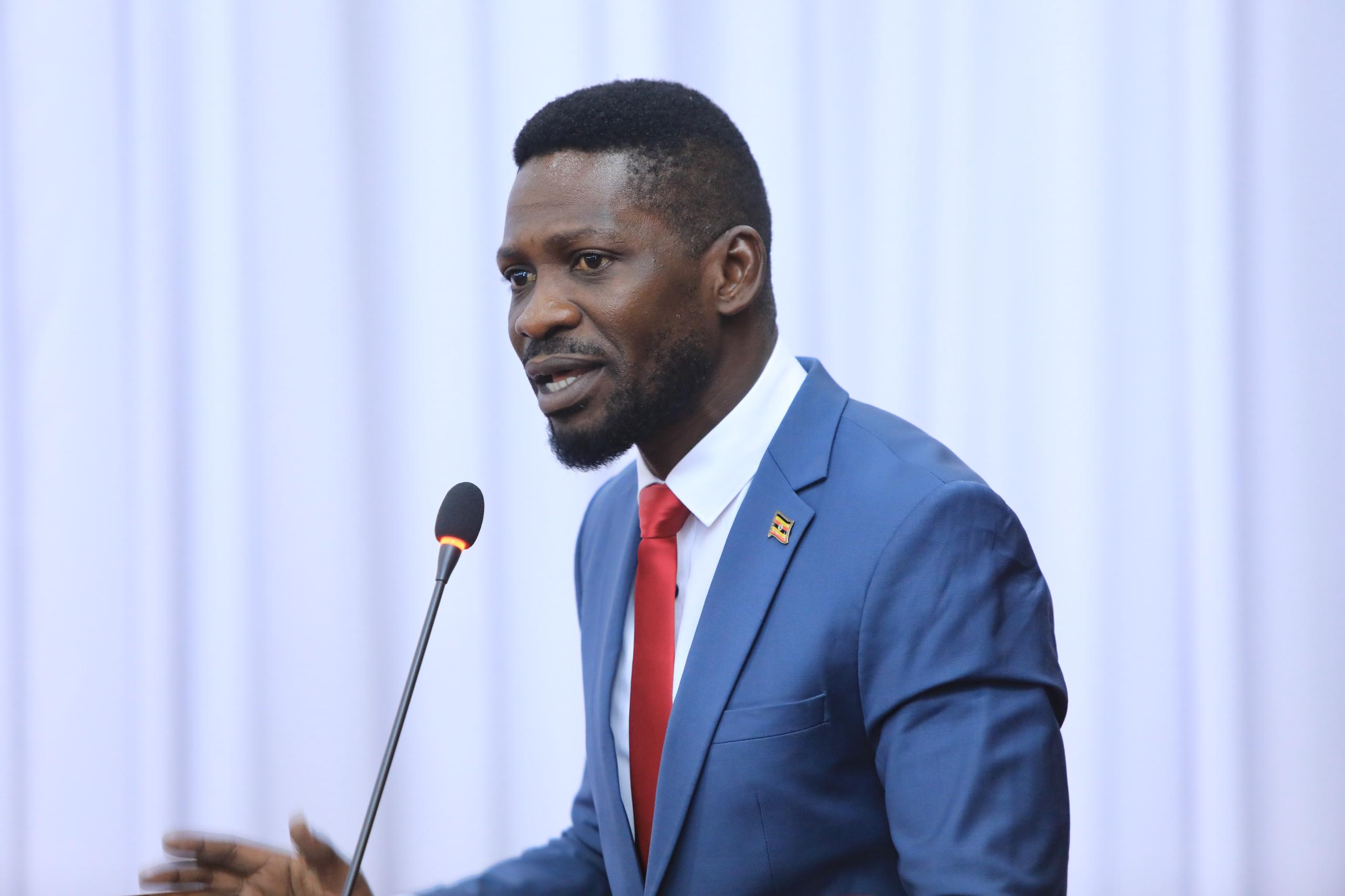Kyagulanyi slams parliament over corruption
Tuesday April 01 2025

The President of the National Unity Platform (NUP), Robert Kyagulanyi, has harshly criticized the Ugandan Parliament, describing it as the "High Temple of Corruption," during his address at the presentation of the 2025/26 Alternative Budget. Kyagulanyi, a vocal opposition leader, called out the institution for its alleged role in numerous scandals, most notably the controversial iron sheet distribution intended for the impoverished people of Karamoja, which reportedly involved Speaker Anita Among and Cabinet Ministers.
Speaking directly to the gathering at Parliament, Kyagulanyi emphasized that there was no better place to discuss corruption than in the halls of Parliament, which he claimed has increasingly become a symbol of impunity and mismanagement. He pointed to the iron sheet scandal, where high-ranking officials were accused of diverting resources meant for the marginalized, and criticized the practice of rewarding individuals like the former Leader of Opposition with service awards before they even began their duties.
“There is no better place to talk about corruption than here, the Parliament of Uganda, which has distinguished itself in recent days as the high temple of corruption. This Parliament has had the most outrageous scandals recently, with impunity siphoning taxpayers' money. In recent days, we have seen this Parliament doing unprecedented things,” Kyagulanyi said. “We've seen in this Parliament the Speaker of Parliament and government ministers sharing iron sheets meant for the poorest of the poor in Uganda. It is in this Parliament that we've seen the Leader of Opposition rewarded before he works.”
Kyagulanyi also took aim at the broader political system in Uganda, blaming the Museveni administration for institutionalizing corruption as a way of maintaining power. He described corruption as the currency of the regime, used to reward the corrupt and silence those who speak out against it. He went on to argue that this environment has turned Uganda's Parliament into a space where only the most corrupt individuals thrive, warning that the institution could not be trusted to lead the country toward change.
“We know that one of the biggest achievements of the Museveni regime is institutionalizing corruption. And that is true because we all can realize that corruption is a currency in this regime. Corruption is used to reward the corrupt and to silence or even eliminate those that are fighting it,” Kyagulanyi added. "This, our Parliament, just like the Museveni regime, attracts the worst of characters and corrupts the best.”
Kyagulanyi’s remarks were echoed by former Leader of Opposition, Winnie Kiiza, who also criticized the government's handling of the nation's resources. Kiiza dismissed claims that Uganda was a poor country, arguing instead that the nation was suffering from poor leadership and management. She attributed the country’s economic struggles to a “kiosk mentality” among its leaders and blamed the system’s institutionalized corruption for its inability to effectively manage resources.
“Uganda is not a poor country like many people think or like our leaders want us to believe. Uganda is a nation that has poor managers who manage a nation with a kiosk mentality. Because of that, they have allowed corruption to become a way of life in Uganda. Corruption has been referred to as a corporation,” Kiiza said.
Kiiza also highlighted the dire situation in Uganda’s healthcare sector, where she pointed to the loss of over Shs 316 billion in expired drugs, which she argued was a direct result of corruption. She expressed concern over the inadequate medical supplies in the country’s rural areas, stressing that this mismanagement was contributing to the ongoing health crisis.
“Over Shs 316 billion is lost in the medical field due to corruption and expired drugs. Can you imagine a country having expired drugs when Ugandans are dying because of lack of medical supplies in the countryside?” Kiiza lamented. “And we know that healthy nations are built by healthy populations. And so, if you cannot even be mindful enough of the population that you lead, would you really be worthy of being called a leader?”


